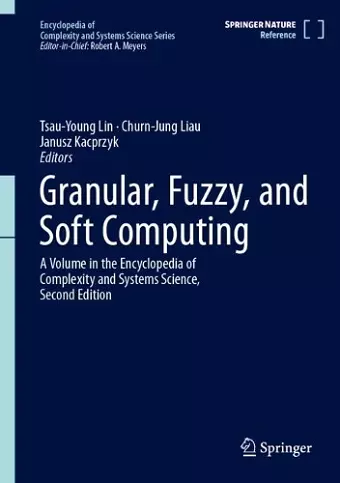Granular, Fuzzy, and Soft Computing
Janusz Kacprzyk editor Tsau-Young Lin editor Churn-Jung Liau editor
Format:Hardback
Publisher:Springer-Verlag New York Inc.
Published:30th Mar '23
Should be back in stock very soon

The first edition of the Encyclopedia of Complexity and Systems Science (ECSS, 2009) presented a comprehensive overview of granular computing (GrC) broadly divided into several categories: Granular computing from rough set theory, Granular Computing in Database Theory, Granular Computing in Social Networks, Granular Computing and Fuzzy Set Theory, Grid/Cloud Computing, as well as general issues in granular computing. In 2011, the formal theory of GrC was established, providing an adequate infrastructure to support revolutionary new approaches to computer/data science, including the challenges presented by so-called big data.
For this volume of ECSS, Second Edition, many entries have been updated to capture these new developments, together with new chapters on such topics as data clustering, outliers in data mining, qualitative fuzzy sets, and information flow analysis for security applications. Granulations can be seen as a natural and ancient methodology deeply rooted in the human mind. Many daily "things" are routinely granulated into sub "things": The topography of earth is granulated into hills, plateaus, etc., space and time are granulated into infinitesimal granules, and a circle is granulated into polygons of infinitesimal sides. Such granules led to the invention of calculus, topology and non-standard analysis. Formalization of general granulation was difficult but, as shown in this volume, great progress has been made in combing discrete and continuous mathematics under one roof for a broad range of applications in data science.
ISBN: 9781071626276
Dimensions: unknown
Weight: unknown
933 pages
1st ed. 2023